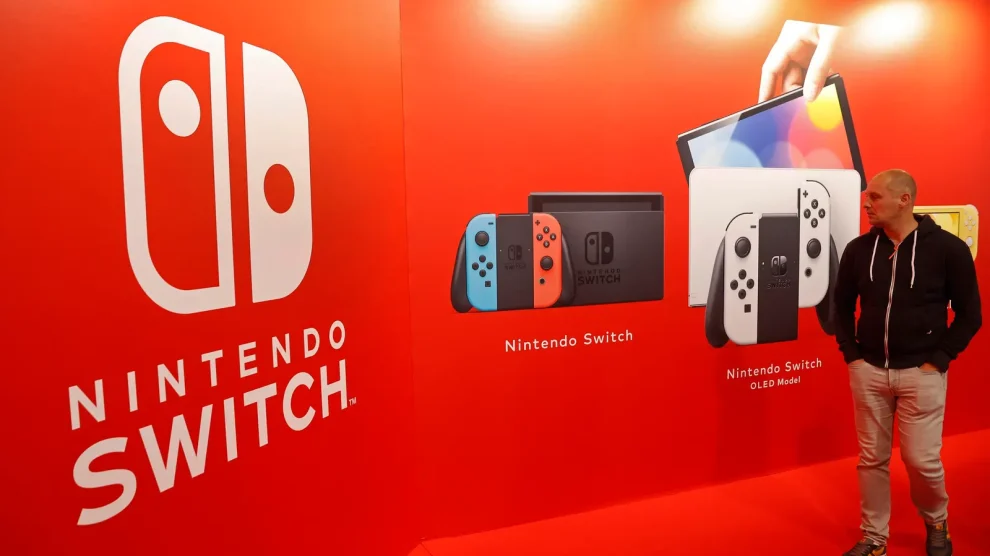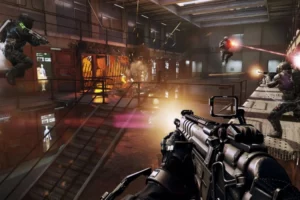Nintendo, the beloved gaming giant known for its family-friendly franchises like Mario and Pokémon, has recently declared war on the inappropriate use of its intellectual properties (IPs) online. This move comes after a shareholder raised concerns about “cases on social media where Nintendo IP and games are used inappropriately,” posing a potential risk to the company’s brand image.
Protecting the Innocence: Nintendo’s Core Values
Nintendo has always prioritized creating wholesome entertainment experiences suitable for all ages. Here’s a closer look at the company’s core values and why this fight against inappropriate content is important:
-
Family-Friendly Focus: For decades, Nintendo has carved a niche in the gaming industry by offering games that parents feel comfortable letting their children play. Franchises like Super Mario, The Legend of Zelda, and Animal Crossing are synonymous with wholesome fun and positive messages.
-
Protecting Brand Reputation: The inappropriate use of Nintendo’s characters and games could tarnish the company’s carefully cultivated image. Nintendo wants to ensure that its IPs are associated with positive experiences, fostering a sense of trust and safety for families who choose their games.
-
Combating Toxicity in Online gaming: The rise of online gaming communities has unfortunately brought with it a wave of toxic behavior and inappropriate content. Nintendo aims to protect its younger audience from such negativity and maintain a safe online environment for its players.
While Nintendo hasn’t specified the exact nature of the “inappropriate use” it’s targeting, the company’s stance is clear: it will take action against content that undermines its core values and potentially harms its brand image.
The Line in the Sand: What Constitutes Inappropriate Use?
The specific details of Nintendo’s crackdown remain somewhat ambiguous. Here’s a breakdown of potential scenarios that might fall under Nintendo’s radar:
-
Sexualization of Characters: Nintendo characters are designed to be relatable and appealing to all ages. Any content that sexualizes these characters, particularly those associated with younger demographics, could be deemed inappropriate.
-
Violent Content: While some Nintendo games have elements of combat, violence is often cartoonish and non-graphic. Content featuring excessive violence or gore involving Nintendo characters would likely be considered inappropriate.
-
Hate Speech and Discrimination: Nintendo strives to create an inclusive gaming environment. Any content featuring hate speech, discrimination, or offensive language associated with Nintendo IPs could be flagged.
-
Copyright Infringement: While some fan-made content might be tolerated, blatant copyright infringement, like using Nintendo characters for commercial purposes without permission, will likely be addressed.
It’s important to note that Nintendo hasn’t provided a definitive list of what constitutes “inappropriate use.” However, these examples offer a general sense of the type of content the company might target with its new policy.
The Tools of the Trade: How Might Nintendo Enforce its Policy?
With a commitment to taking action, the question arises: how will Nintendo enforce its policy against inappropriate use? Here are some potential methods:
-
Copyright Takedowns: Nintendo can leverage existing copyright laws to have offensive content removed from online platforms. This could include social media posts, fan-made creations, or potentially even unauthorized merchandise.
-
Community Guidelines and Moderation: Nintendo’s online platforms, like the Nintendo Switch Online service, could see stricter community guidelines and increased moderation efforts to identify and remove inappropriate content.
-
Legal Action: In extreme cases, Nintendo might resort to legal action against individuals or entities found to be blatantly violating their intellectual property rights through offensive or harmful content creation.
While the exact methods remain under wraps, it’s evident that Nintendo is serious about tackling the issue. The company has a arsenal of tools at its disposal to enforce this new policy and ensure its IPs are used in a way that aligns with its brand values.
Beyond the Crackdown: Striking a Balance
Nintendo’s stance on inappropriate content is understandable. However, it’s crucial to maintain a balance between protecting their brand and stifling creativity. Here’s a look at potential concerns:
-
Censorship Concerns: Overly restrictive policies could be perceived as censorship, potentially stifling the creation of fan art, parodies, or other creative content that utilizes Nintendo IPs.
-
Chilling Effect for Fan Communities: Strict enforcement might discourage fan communities from creating content based on their favorite Nintendo games and characters.
-
Open Dialogue and Collaboration: Finding a middle ground could involve open communication between Nintendo and its fanbase. Transparency regarding acceptable use and collaboration with fan communities could be beneficial.
The key lies in striking a balance between protecting their brand identity and fostering a thriving fan community. Open communication and clear guidelines can help ensure that Nintendo’s efforts don’t stifle creativity or alienate their loyal fanbase.
















Add Comment